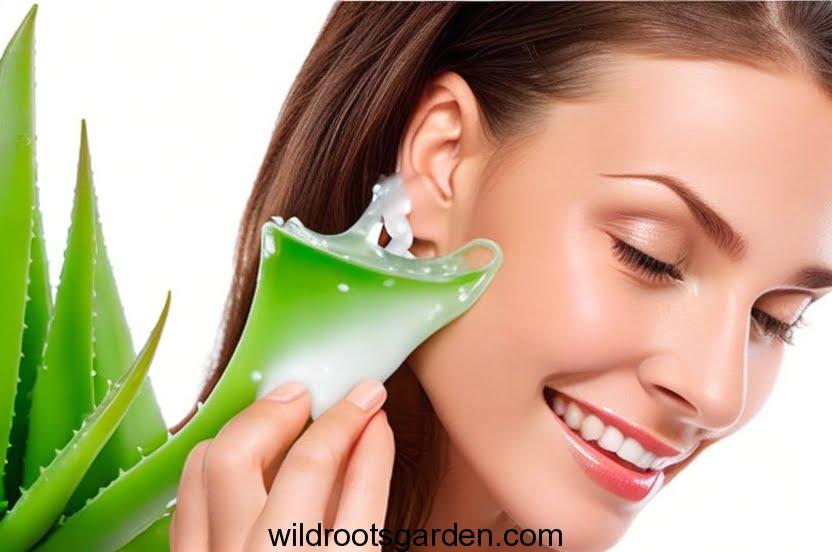Aloe Vera or Coconut Oil for Skin.Coconut oil or aloe vera: which is healthier for your skin? To assist you in making a well-informed choice for your skincare regimen, this extensive essay examines the advantages, applications, and disadvantages of both natural therapies.
People frequently turn to natural therapies like aloe vera and coconut oil in their pursuit of beautiful and healthy skin. These substances have a long history of use in conventional medicine and skincare regimens. Nevertheless, there is a wealth of information online, making it difficult to choose which is best for your skin’s requirements. This article compares aloe vera and coconut oil for the skin in-depth, highlighting each product’s special qualities, advantages, and potential downsides. By the end, you’ll know more precisely which natural treatment fits your skincare objectives the best.
JUMP TO TOPIC
Aloe Vera for Skin: Nature’s Soothing Elixir
A succulent plant with fleshy, thick leaves known as aloe vera has been lauded as a natural treatment for a number of skin ailments. Aloe vera is abundant in vitamins, minerals, and enzymes, and it has many positive effects on the skin.
1. Aloe Vera: A Brief Overview
Let’s quickly review aloe vera before moving on to the advantages. Around 75 active components, including vitamins A, C, E, and B12 as well as minerals like magnesium, calcium, and zinc, are included in the gel-like substance made from this plant. It is a fantastic contender for skincare because of its inherent anti-inflammatory, antibacterial, and antioxidant characteristics.

2. Soothes Irritated Skin
Aloe vera’s capacity to calm inflamed skin is one of the main reasons it has become so well-known in the cosmetics industry. Using aloe vera gel can offer immediate comfort and accelerate healing for conditions like sunburn, rashes, or dryness.
3. Hydrates and Moisturizes
Many skin problems, including early aging and greater sensitivity, can be caused by dry skin. Deep skin penetration allows aloe vera gel to hydrate and lock in moisture, leaving your skin smooth and supple.
4. Reduces Acne and Blemishes
The antibacterial and anti-inflammatory properties of aloe vera help fight acne-causing germs and lessen inflammation. Aloe vera gel can be applied frequently to help erase scars and stop future breakouts.
5. Anti-Aging Benefits
Aloe vera’s antioxidants work to combat free radicals and lessen aging symptoms like wrinkles and fine lines. It also encourages the synthesis of collagen, improving the firmness and suppleness of the skin.

6. Aids in Wound Healing
Little cuts and wounds heal more quickly thanks to aloe vera. Its gel creates a barrier of defense around the injured area, lowering the danger of infection and assisting with tissue recovery.
Coconut Oil for Skin: The Natural Nourisher
Coconut oil is a versatile natural medicine that has gained popularity for its potential advantages in skincare. It is made from the fruit of the coconut palm.
1. Coconut Oil: A Brief Overview
Coconut oil is well known for having a high percentage of saturated fats, which gives it special benefits for the skin. It has nourishing and protecting properties due to the necessary fatty acids, vitamin E, and lauric acid it contains.
2. Deep Moisturization
Coconut oil’s exceptional capacity to deeply hydrate the skin is one of its best features. By forming a protective barrier, it stops moisture loss and keeps skin hydrated.

3. Gentle Makeup Remover
A natural and efficient makeup remover is coconut oil. Due to its emollient properties, makeup—even tenacious waterproof products—can be removed without the need of harsh chemicals.
4. Fights Fungal Infections
Due to its antifungal characteristics, coconut oil is a fantastic treatment for fungus-related skin illnesses including ringworm and athlete’s foot. Using coconut oil topically helps relieve itching and accelerate recovery.
5. Anti-Inflammatory Effects
Coconut oil contains lauric acid, which has anti-inflammatory qualities that help relieve itchy skin diseases including eczema and psoriasis.

6. Enhances Skin Barrier
Frequent application of coconut oil helps strengthen the skin’s defenses against free radicals and environmental contaminants.
Aloe Vera vs. Coconut Oil: The Ultimate Comparison
After examining the distinct advantages of aloe vera and coconut oil for the skin, let’s compare them side by side to see which one is superior.
1. Skin Types and Suitability
Generally speaking, aloe vera is excellent for all skin types, even sensitive skin. It’s non-greasy texture and calming qualities make it the perfect option for people with acne-prone skin or sensitive skin. Coconut oil, on the other hand, might not be a good choice for acne-prone or oily skin because of the possibility of pore-clogging and outbreaks due to its rich nature.
2. Moisturization Power
Coconut oil is the best when it comes to deep moisturizing. Its emollient properties enable it to efficiently lock in moisture, making it a great option for anyone with dry or dehydrated skin. Conversely, people with oily skin might find the lightweight texture of aloe vera to be more appealing.
3. Anti-Aging Properties
Aloe vera and coconut oil both have anti-aging properties, but aloe vera has an advantage in neutralizing free radicals and encouraging collagen formation due to its antioxidant-rich makeup. Aloe vera might be a wiser alternative if anti-aging is your main priority.
4. Healing and Soothing
The excellent capacity of aloe vera to relieve and encourage healing in a variety of skin diseases makes it stand out in this area. Aloe vera’s cooling qualities help ease pain and hasten healing whether you have minor wounds, rashes, or sunburn.
5. Acne Treatment
Aloe vera’s antibacterial and anti-inflammatory characteristics make it a better alternative for treating acne and decreasing blemishes than coconut oil, which may not be the greatest choice for skin that is prone to breakouts.
6. Versatility
The uses for coconut oil go beyond skincare; it may also be used in cooking and hair care. Coconut oil might be more tempting if you’re seeking a natural cure with multiple uses.
Frequently Asked Questions (FAQs)
Can I use both aloe vera and coconut oil together in my skincare routine?
Yes, you can! Combining the two natural remedies can create a potent blend that addresses various skin concerns. For instance, you can mix aloe vera gel with a few drops of coconut oil for added moisturization.
Are there any side effects of using aloe vera or coconut oil on the skin?
While both aloe vera and coconut oil are generally safe for topical use, some individuals may be allergic to these natural ingredients. Always perform a patch test before applying them to larger areas of the skin.
Can coconut oil be used as a sunscreen?
While coconut oil does offer some natural sun protection due to its antioxidant content, it is not a substitute for sunscreen. For adequate sun protection, use a broad-spectrum sunscreen with at least SPF 30.
Which option is better for oily skin: aloe vera or coconut oil?
Aloe vera is generally more suitable for oily skin due to its lightweight and non-greasy texture. It can provide hydration without clogging pores, making it an excellent choice for individuals with oily or acne-prone skin.
Can aloe vera or coconut oil help with eczema?
Aloe vera’s anti-inflammatory properties can provide relief for some individuals with eczema. Coconut oil, on the other hand, may soothe dryness and itchiness associated with eczema but might not be suitable for everyone.
Can I leave aloe vera or coconut oil on my skin overnight?
Yes, you can leave either aloe vera or coconut oil on your skin overnight. Both are gentle and nourishing, making them suitable for overnight use. However, if you have sensitive skin, consider doing a patch test first.
Conclusion
The choice between aloe vera and coconut oil for the skin ultimately comes down to personal preferences and skin types. Aloe vera’s calming qualities make it a great option for skin that is inflamed or prone to acne, while coconut oil’s deep moisturizing capabilities are advantageous for individuals with dry skin. Consider incorporating both natural treatments into your skincare routine based on the requirements of your skin in order to get the most benefit from them. Nature has given us useful resources to advance our skincare journey, whether it is the calming comfort of aloe vera or the nourishing power of coconut oil.


